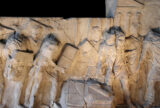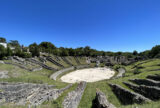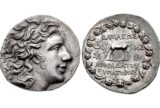Will the Supreme Court Give the President More Immunity Than a Roman Emperor?
Two Centuries of Ancient Legal Scholarship Applied the Same Laws to Leaders as Everyone Else
I have been studying and writing about Roman emperors for more than 30 years. I never imagined I would live in a time and place where the judicial system might give more extensive legal immunity to an American president than any Roman emperor ever enjoyed. Until last Thursday.
Contemporary imagination often assumes that Roman emperors enjoyed absolute authority to do what they wanted with their empire’s resources, wealth, and military power. They did not. Rather, Roman emperors were magistrates who held office for life, managing the Roman state on behalf of …










